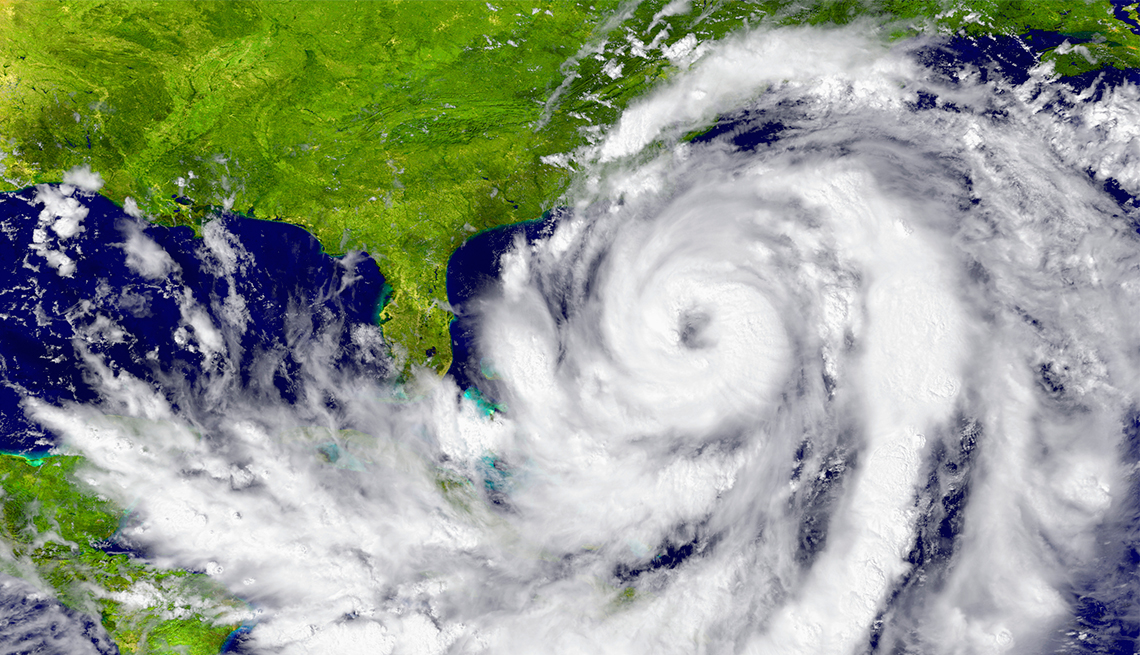Staying Fit
The hurricane season extends from June 1 until Nov. 30. It's time to think about how to protect yourself and your loved ones properly during the passage of a devastating storm.
If a hurricane is approaching and you can't move to a safer place, follow these tips from the state offices of AARP Florida and Texas.
- Make plans to secure your property. Cover your windows with permanent storm shutters or with 5/8-inch plywood boards. Bring in all outdoor furniture, decorations, garbage cans and anything else that is not tied down. You don't want any of that flying around in the wind and hitting your house. Be sure trees and shrubs around your home are well trimmed so they are more wind-resistant, and clear any rain gutters or downspouts that may be clogged.
- Designate a room in your home as a safe zone to wait in while riding out a storm. Or consider building a safe room. A safe room is a fortified shelter for storms or intrusions. Since this can be expensive, the alternative is to simply identify the safest room in your home. Ideally, that's a room without windows and not much furniture.
- Prepare to be self-sufficient for at least three days. While government responders will work hard to respond to a major disaster, it will take time to deliver supplies. You should be able to cope on your own for at least three days. A week would be better.
- Think about whether your health could be at risk if you lose air-conditioning, fresh water, sewage service or other services. While many older people can cope just fine if there's no electricity, others are living with health conditions that may limit their ability to tolerate heat, especially if they must exert themselves to climb stairs or carry heavy loads.
- If you decide to relocate before or immediately after a storm, remember that it's often easier to go only as far as needed to reach an area where services are still operating normally. Often this is only 100 or 150 miles from home.
- Make a plan for your pets. Because many of us consider pets to be family members, we can hesitate to evacuate when necessary for fear of leaving our animals at risk. For more pet information, go to redcross.org.
- If you need assistance during and after a storm, register with a special-needs shelter in your area. To register, call your county emergency operations center. The phone number can be found in the blue pages of your phone book.


AARP Membership— $12 for your first year when you sign up for Automatic Renewal
Get instant access to members-only products and hundreds of discounts, a free second membership, and a subscription to AARP the Magazine.
In the case of evacuation before or after a hurricane, make sure you have a solid evacuation kit, which should include all of the following:
- Copy of all household members' IDs or driver's licenses
- Copy of birth certificates
- Clothes
- Food and water (for at least three days)
- Cash or traveler's checks
- Maps of your evacuation route, alternate routes and a way to get to local shelters
- Extra set of car keys, along with a full tank of gas
- At least one flashlight with extra batteries
- First aid kit
- Medications you may need (for at least three days)
- Extra glasses or contact lenses

































































